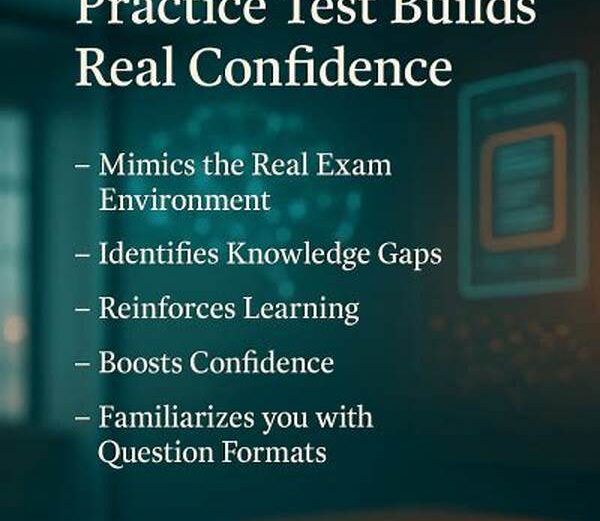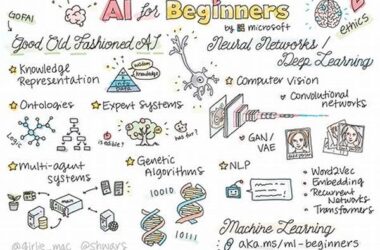- The Development of Competence in AI
- Why AI Practice Builds Confidence for Beginners: Goals and Aspirations
- Understanding the Beginner’s Mind
- Overcoming the Fear Factor
- Highlights of Why AI Practice Builds Confidence for Beginners
- Key Insights: How AI Practice Enhances Early Confidence
- Building Resilience and Resourcefulness
- Embracing the AI Future
In an age where artificial intelligence (AI) is transforming industries left and right, beginners often find themselves standing on the precipice of an overwhelming sea of possibilities. Diving into AI practice might seem daunting for novices, akin to learning a new language without knowing the alphabet. But fear not, aspiring AI enthusiast, because why AI practice builds confidence for beginners is not just a mantra—it’s a journey. A journey that promises empowerment and growth. Today, we’re unraveling why starting with AI practice is not only about mastering technology but also about building a robust sense of self-confidence.
Read More : Top Ai Beginner Guides Loved In 2025
Imagine Jane, a graphic designer pondering a switch to AI-driven digital design. Initially, the tech-heavy jargon and complex algorithms seemed as foreign as quantum physics. Yet, she began by fiddling around with accessible AI tools designed for beginners. The initial hurdles felt less like mountains and more like speed bumps. Each small triumph—like programming a simple chatbot—did wonders to her confidence. It’s a rewarding paradox where the more Jane practiced, the less daunting AI seemed, echoing the compelling truth that why AI practice builds confidence for beginners.
As you dip your toes into AI, you’ll find that the practice changes from a challenge to a personal coach, patiently guiding you toward your potential. With every experiment and inevitable mistake, you gather nuggets of knowledge. AI practice is like breaking personal records in a video game; the exhilaration of leveling up boosts your spirit. This unique selling point ensures that once you start, the momentum is contagious and encouragement is automatic—a support system embedded in learning itself. Here lies the beauty of why AI practice builds confidence for beginners.
In this tech-savvy world, whether you’re picking up AI for personal interest or professional advancement, the effect remains the same. Like a comedian finding their punchline, beginners will find that AI practice fosters a creative freedom and curiosity that ripples through other areas of life. The confidence gained is multifaceted—it’s not just about being good with computers. It’s about learning to trust your capacity to learn, innovate, and adapt. With AI as the starting block, the leap into self-assured creativity and mastery is within reach for anyone who’s willing to take that first step.
The Development of Competence in AI
Once the initial fear subsides, a funny thing happens. You begin to truly enjoy the process. The programming no longer seems an endless string of numbers and letters. It transforms into a narrative—a compelling story of ‘problem’ and ‘solution.’ Just like a beginner chef mastering their signature dish, an AI novice learns to craft algorithms with finesse, confidence gaining momentum as you progress. AI practice provides a tangible means to visualize progress, turning the abstract into the concrete. As the layers of complexity peel away, why AI practice builds confidence for beginners becomes an evident outcome of steady and engaging perseverance.
—
Why AI Practice Builds Confidence for Beginners: Goals and Aspirations
AI has the potential to be an intimidating terrain for beginners, yet it holds an equally vast capacity to build confidence and foster growth. Truly, it’s an intriguing paradox where what was once daunting transforms into a reliable foundation for personal and professional development. This unique journey prompts the question: why AI practice builds confidence for beginners, and how does it cater to their goals?
On embarking on AI practice, beginners can grasp the immeasurable value of progressive learning. The complex scenarios in AI provide nuanced challenges that foster cognitive development and enhance problem-solving skills—a key component in boosting confidence. As research points out, repeated exposure to complex problem-solving aids in the development of intellectual agility. Thus, AI serves as a mental gymnasium where beginners can exercise their intellectual muscles, gradually building the confidence that they might otherwise think unattainable.
Understanding the Beginner’s Mind
The notion of a beginner’s mind is a powerful tool in learning AI. Initially, it’s all about negotiating the unknown, but over time it transitions into appreciating the beauty of innovation. AI practice offers an opportunity to embrace failure not as a setback but as feedback. This mindset shift is transformative, establishing a sense of achievement even in the face of minor setbacks. It’s fascinating how an AI system’s constructive failures contribute to the beginner’s evolving competence and confidence.
Continuous engagement with AI makes aspiring learners adept in self-assessment, recognizing their weak zones, and turning challenges into learning opportunities. The regularity of practice morphs raw curiosity into expertise. Beginners like Emily, venturing from zero coding experience to creating functional AI models, stand as testament to why AI practice builds confidence for beginners. It crafts an educational journey that allows room for growth, exploration, and introspection.
Transforming Challenges into Growth
The realm of AI inherently promotes a growth mindset—a principle that posits intelligence and abilities can develop over time. For beginners, AI indulgence signifies accepting challenges, pushing boundaries, and leaping beyond comfort zones. Basic AI projects provide constructive feedback and a sense of accomplishment that invariably amplifies confidence. The rush from cracking code or configuring models fuels a desire for more, channeling enthusiasm into mastery.
This burgeoning confidence extends well beyond AI. Skills honed in AI training—critical thinking, precision, creativity—spill over into other life areas. Whether you aim to climb the career ladder or delve further into tech, the confidence garnered from AI practice propels you toward your goals. Like a pendulum gaining momentum, the more you practice, the greater your competency, ensuring continued success along your AI journey. Newcomers quickly learn that AI resonates with an agile mind, demonstrating once more why AI practice builds confidence for beginners.
Overcoming the Fear Factor
A major deterrent for beginners in AI is the inherent fear of technology’s complexity. Why AI practice builds confidence for beginners lies in the gradual desensitization of this fear. AI practice segments massive challenges into manageable pieces, offering learners bite-sized projects that exude success. The ability to manipulate AI platforms translates fear into excitement, instilling courage to tackle progressively complex tasks. It’s analogous to learning to ride a bike—initially, the bike seems unwieldy, but persistent practice makes it second nature.
Learners persevere, breaking down the tasks into understandable modules. Peer communities form, sharing insights, offering tips, and recounting experiences. From forums to community hubs, the network cultivates a sense of belonging and mutual learning. The camaraderie shields beginners from feeling isolated or overwhelmed. As a result, their fear transforms into fascination. As progress becomes apparent, so does the underlying truth: AI practice builds resilience alongside competence.
—
Highlights of Why AI Practice Builds Confidence for Beginners
—
Key Insights: How AI Practice Enhances Early Confidence
At its core, AI technology seeks to mimic human intelligence, striving for efficiency and accuracy. For beginners steeped in this dynamic field, the tools are new, but the desire for knowledge is universal. “Why AI practice builds confidence for beginners” remains a focal point in introductory AI, as it journeys beyond traditional learning paradigms into boundless innovation and exploration.
While the algorithms may appear labyrinthine, the commitment to understanding them pays dividends. Novices engaging in AI practice discover the adrenaline rush that comes with solving complex problems. Whether it’s optimizing formulas, enhancing predictive models, or developing AI applications, each milestone achieved equates to a rising tide of self-assurance—one that’s potent enough to challenge and reshape perceptions.
Building Resilience and Resourcefulness
AI practice requires cultivating resilience, particularly among beginners who encounter frequent failures. Yet within these failures lie profound lessons. Tackling bugs and fixing code isn’t merely technical fine-tuning; it’s a dialogue in discovering durable solutions. As resilience builds, so does resourcefulness. Enthusiasts learn to navigate challenges innovatively, often experimenting with novel approaches that seasoned professionals would consider unconventional.
With AI, there’s no one-size-fits-all solution, and that unpredictability fosters adaptability—a trait immensely useful in the tech industry and beyond. Beginners come to understand that AI practice empowerments are deeply personal journeys, capable of unlocking potential and instilling confidence through firsthand experience. When challenges arise, their sharpened resourcefulness enables them to turn obstacles into opportunities, an empowerment symbolic of true AI practitioners.
Educational Structures that Promote Engagement
Instructional strategies emphasizing real-world applications further bridge the confidence gap. Studies correlate practical engagement to retention; therefore, curriculums incorporate project-based learning to enhance skill application. By undertaking tasks grounded in reality, novices frame their understanding practically, applying theoretical knowledge to practical use cases. Herein lies the truth of why AI practice builds confidence for beginners; it’s immersive education seamlessly unifying learning and application.
With community collaborations, learners foster ties with mentors and peers, creating an echo-chamber of shared growth and encouragement. Discussions spanning forums expedite collective wisdom, unleashing creativity. The shared enthusiasm adroitly cultivates networking relations based on shared interests. As learning intensifies into a collaborative atmosphere of camaraderie and support, the constraints of time and location dissipate.
Embracing the AI Future
The unique intersection of AI practice and education motivates beginners to reconsider their interactions with technology. It’s an energized approach that kindles participants’ innate curiosity while tangibly showcasing AI’s broad applications and impact. From sprawling industries to pioneering endeavors, we witness an AI-driven world materializing. Herein, persistent engagement leads to proficiency—an all-important factor influencing how beginners perceive their capabilities.
The beauty of why AI practice builds confidence for beginners is its ability to transition enthusiasts from a state of trepidation to that of anticipation. Each successful milestone further ignites passion, confirming to learners that they too can harness the power of AI. Through strategic curiosity, AI seamlessly transforms abstraction into action, explorers into experts, reinforcing irresistibly sweet confidence that marks the dawn of innovation.



